
Palm Sunday
 Things started to fall apart at home when my brother, Jaja, did not go to communion and Papa flung his heavy missal across the room and broke the figurines on the tagre. We had just returned from church. Mama placed the fresh palm fronds, which were wet with holy water, on the dining table and then went upstairs to change. Later, she would knot the palm fronds into sagging cross shapes and hang them on the wall beside our gold-framed family photo. They would stay there until next Ash Wednesday, when we would take the fronds to church, to have them burned for ash. Papa, wearing a long, gray robe like the rest of the oblates, helped distribute ash every year. His line moved the slowest because he pressed hard on each forehead to make a perfect cross with his ash-covered thumb and slowly, meaningfully enunciated every word of dust and unto dust you shall return.
Things started to fall apart at home when my brother, Jaja, did not go to communion and Papa flung his heavy missal across the room and broke the figurines on the tagre. We had just returned from church. Mama placed the fresh palm fronds, which were wet with holy water, on the dining table and then went upstairs to change. Later, she would knot the palm fronds into sagging cross shapes and hang them on the wall beside our gold-framed family photo. They would stay there until next Ash Wednesday, when we would take the fronds to church, to have them burned for ash. Papa, wearing a long, gray robe like the rest of the oblates, helped distribute ash every year. His line moved the slowest because he pressed hard on each forehead to make a perfect cross with his ash-covered thumb and slowly, meaningfully enunciated every word of dust and unto dust you shall return.
Papa always sat in the front pew for Mass, at the end beside the middle aisle, with Mama, Jaja, and me sitting next to him. He was first to receive communion. Most people did not kneel to receive communion at the marble altar, with the blond lifesize Virgin Mary mounted nearby, but Papa did. He would hold his eyes shut so hard that his face tightened into a grimace, and then he would stick his tongue out as far as it could go. Afterward, he sat back on his seat and watched the rest of the congregation troop to the altar, palms pressed together and extended, like a saucer held sideways, just as Father Benedict had taught them to do. Even though Father Benedict had been at St. Agnes for seven years, people still referred to him as our new priest. Perhaps they would not have if he had not been white. He still looked new. The colors of his face, the colors of condensed milk and a cut-open soursop, had not tanned at all in the fierce heat of seven Nigerian harmattans. And his British nose was still as pinched and as narrow as it always was, the same nose that had had me worried that he did not get enough air when he first came to Enugu. Father Benedict had changed things in the parish, such as insisting that the Credo and kyrie be recited only in Latin; Igbo was not acceptable. Also, hand clapping was to be kept at a minimum, lest the solemnity of Mass be compromised. But he allowed offertory songs in Igbo; he called them native songs, and when he said native his straight-line lips turned down at the corners to form an inverted U. During his sermons, Father Benedict usually referred to the pope, Papa, and Jesusin that order. He used Papa to illustrate the gospels. When we let our light shine before men, we are reflecting Christs Triumphant Entry, he said that Palm Sunday. Look at Brother Eugene. He could have chosen to be like other Big Men in this country, he could have decided to sit at home and do nothing after the coup, to make sure the government did not threaten his businesses. But no, he used the Standard to speak the truth even though it meant the paper lost advertising. Brother Eugene spoke out for freedom. How many of us have stood up for the truth? How many of us have reflected the Triumphant Entry?
The congregation said Yes or God bless him or Amen, but not too loudly so they would not sound like the mushroom Pentecostal churches; then they listened intently, quietly. Even the babies stopped crying, as if they, too, were listening. On some Sundays, the congregation listened closely even when Father Benedict talked about things everybody already knew, about Papa making the biggest donations to Peters pence and St. Vincent de Paul. Or about Papa paying for the cartons of communion wine, for the new ovens at the convent where the Reverend Sisters baked the host, for the new wing to St. Agnes Hospital where Father Benedict gave extreme unction. And I would sit with my knees pressed together, next to Jaja, trying hard to keep my face blank, to keep the pride from showing, because Papa said modesty was very important.
Papa himself would have a blank face when I looked at him, the kind of expression he had in the photo when they did the big story on him after Amnesty World gave him a human rights award. It was the only time he allowed himself to be featured in the paper. His editor, Ade Coker, had insisted on it, saying Papa deserved it, saying Papa was too modest. Mama told me and Jaja; Papa did not tell us such things. That blank look would remain on his face until Father Benedict ended the sermon, until it was time for communion. After Papa took communion, he sat back and watched the congregation walk to the altar and, after Mass, reported to Father Benedict, with concern, when a person missed communion on two successive Sundays. He always encouraged Father Benedict to call and win that person back into the fold; nothing but mortal sin would keep a person away from communion two Sundays in a row.
So when Papa did not see Jaja go to the altar that Palm Sunday when everything changed, he banged his leatherbound missal, with the red and green ribbons peeking out, down on the dining table when we got home. The table was glass, heavy glass. It shook, as did the palm fronds on it.
Jaja, you did not go to communion, Papa said quietly, almost a question.
Jaja stared at the missal on the table as though he were addressing it. The wafer gives me bad breath.
I stared at Jaja. Had something come loose in his head? Papa insisted we call it the host because host came close to capturing the essence, the sacredness, of Christs body. Wafer was too secular, wafer was what one of Papas factories madechocolate wafer, banana wafer, what people bought their children to give them a treat better than biscuits.
And the priest keeps touching my mouth and it nauseates me, Jaja said. He knew I was looking at him, that my shocked eyes begged him to seal his mouth, but he did not look at me.
It is the body of our Lord. Papas voice was low, very low. His face looked swollen already, with pus-tipped rashes spread across every inch, but it seemed to be swelling even more. You cannot stop receiving the body of our Lord. It is death, you know that.
Then I will die. Fear had darkened Jajas eyes to the color of coal tar, but he looked Papa in the face now. Then I will die, Papa.
Papa looked around the room quickly, as if searching for proof that something had fallen from the high ceiling, something he had never thought would fall. He picked up the missal and flung it across the room, toward Jaja. It missed Jaja completely, but it hit the glass tager, which Mama polished often. It cracked the top shelf, swept the beige, finger-size ceramic figurines of ballet dancers in various contorted postures to the hard floor and then landed after them. Or rather it landed on their many pieces. It lay there, a huge leather-bound missal that contained the readings for all three cycles of the church year.
Jaja did not move. Papa swayed from side to side. I stood at the door, watching them. The ceiling fan spun round and round, and the light bulbs attached to it clinked against one another. Then Mama came in, her rubber slippers making slap-slap sounds on the marble floor. She had changed from her sequined Sunday wrapper and the blouse with puffy sleeves. Now she had a plain tie-dye wrapper tied loosely around her waist and that white T-shirt she wore every other day. It was a souvenir from a spiritual retreat she and Papa had attended; the words GOD IS LOVE crawled over her sagging breasts. She stared at the figurine pieces on the floor and then knelt and started to pick them up with her bare hands.


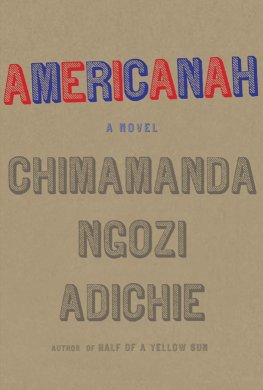

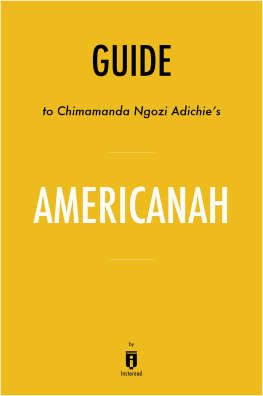
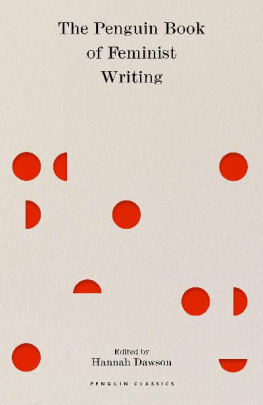
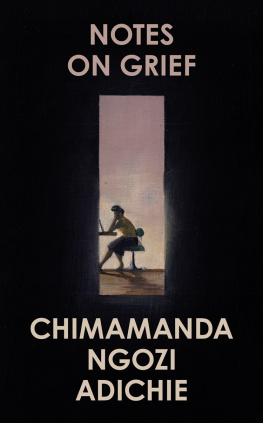
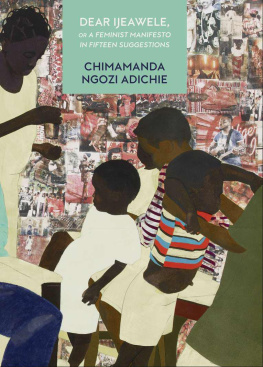
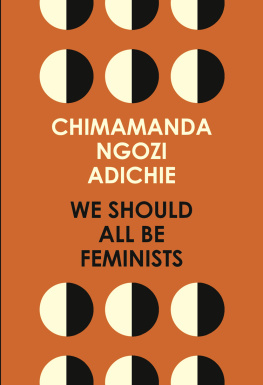

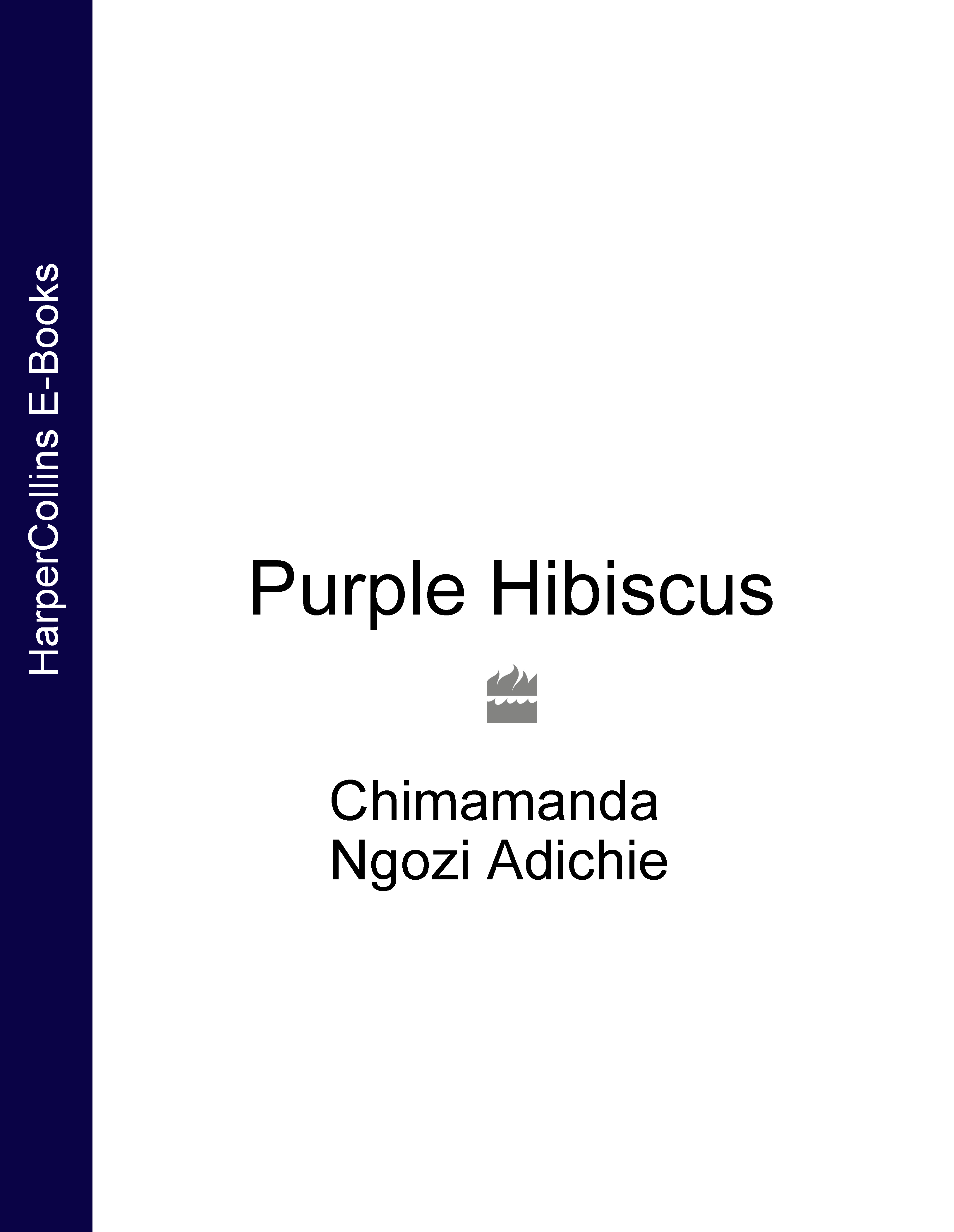

 Things started to fall apart at home when my brother, Jaja, did not go to communion and Papa flung his heavy missal across the room and broke the figurines on the tagre. We had just returned from church. Mama placed the fresh palm fronds, which were wet with holy water, on the dining table and then went upstairs to change. Later, she would knot the palm fronds into sagging cross shapes and hang them on the wall beside our gold-framed family photo. They would stay there until next Ash Wednesday, when we would take the fronds to church, to have them burned for ash. Papa, wearing a long, gray robe like the rest of the oblates, helped distribute ash every year. His line moved the slowest because he pressed hard on each forehead to make a perfect cross with his ash-covered thumb and slowly, meaningfully enunciated every word of dust and unto dust you shall return.
Things started to fall apart at home when my brother, Jaja, did not go to communion and Papa flung his heavy missal across the room and broke the figurines on the tagre. We had just returned from church. Mama placed the fresh palm fronds, which were wet with holy water, on the dining table and then went upstairs to change. Later, she would knot the palm fronds into sagging cross shapes and hang them on the wall beside our gold-framed family photo. They would stay there until next Ash Wednesday, when we would take the fronds to church, to have them burned for ash. Papa, wearing a long, gray robe like the rest of the oblates, helped distribute ash every year. His line moved the slowest because he pressed hard on each forehead to make a perfect cross with his ash-covered thumb and slowly, meaningfully enunciated every word of dust and unto dust you shall return.